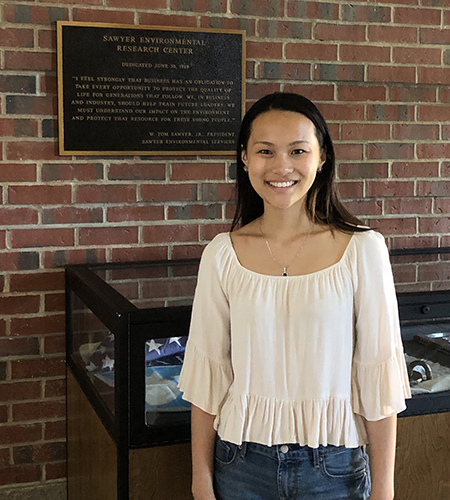Climate Change Ticks Me Off
By Charlotte Rhodes

I’m a rising senior at the University of Connecticut majoring in Ecology and Evolutionary Biology, with a minor in Environmental Studies. Because of my interest in a number of different fields, I have found it very difficult to pinpoint an area of study. I began my undergraduate degree as a Marine Biology major, then I switched to Environmental Science, then to Environmental Studies, until finally settling on my current major. Needless to say, it took me some time to figure out what I wanted out of my career. A quick email thread with a colleague sparked my interest in Medical Entomology, the study of disease carrying insects, and I soon became intrigued by the One Health approach.
Historically humans have exploited resources for personal gain with little concern for the potential consequences. By reshaping the natural world in their own vision, humans have successfully separated themselves from the environment. That’s probably why climate change, for many people, is seen first and foremost as an environmental issue. But if you dig a little deeper, you’ll see that climate change and human issues are very much related – they’re practically inseparable.
Climate influences development, abundance, and range of disease vectors, like ticks and mosquitoes. Warmer temperatures can degrade air quality, leading to complications of respiratory and cardiac disease. Similarly, polluted water can transmit disease, heavy metals, and other dangerous chemicals. We’ve acknowledged the relationship between pollution and human health for years. The Clean Air Act and the Clean Water Act were created to prevent pollution and protect public health. But there still isn’t any federal legislation recognizing the link between climate change and health.
Realizing that I wanted to work at the nexus of health and the environment, I was ecstatic when I arrived at the University of Maine for the REU ANEW program. Under the mentorship of Dr. Sean Birkel and Julia Simonson (PhD candidate), I am currently working to satisfy the need for comprehensive documentation of health consequences associated with extreme weather events in Maine. I will also be investigating a possible connection between the record breaking 1997-1998 El Niño and the increase in ticks and Lyme disease that followed. While there are a number of factors influencing the increase in Lyme disease, El Niño events influence weather in Maine, and may have played a role in the increased incidence of Lyme disease.
The REU ANEW program has given me an excellent opportunity to explore the One Health approach through research. But it has also given me a chance to speak with many different professionals and investigate avenues within the One Health Initiative. This program has encouraged me to examine the broader impacts of my work, my mentors have supported my scientific growth, and my fellow cohort members have pushed me to become a better person.
This blog post was authored by a student participating in the Research Experience for Undergraduates – Accelerating New Environmental Workskills program, which is led by faculty in the Initiative for One Health and the Environmental and funded by the National Science Foundation. Information in this post does not represent the University of Maine or its faculty.
